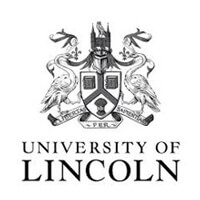fees waived
Computer Science, BSc (Hons), with industry placement
University of Lincoln, United Kingdom
Subject ranking
UK / CUG 44th
UK / The Times 64th
UK / Guardian 77th
Costs
food & rentS$16.8K / year
Entry requirements
Scholarships
Unlimited quantity
Unlimited quantity
Unlimited quantity
Unlimited quantity
Limited quantity
Limited quantity
Information
Code
Code
Intakes
Website (External)
Programmes
Information
Duration
2028
Course summary
The BSc (Hons) Computer Science degree provides you with the opportunity to develop the experience, skills and knowledge to design and develop a variety of software and hardware computing solutions for real-world problems. Particular attention is paid to cutting-edge topics, such as artificial intelligence and human-computer interaction, in addition to core computer science disciplines. This aims to ensure that your studies are at the forefront of research in the field. This degree aims to provide a broad foundation in computer science and provides you with the chance to develop the mathematical, analytical and problem-solving skills required to succeed in the challenging and exciting modern computing industry. With digital technologies driving advances in all aspects of the modern world, from business to healthcare to education, those with expertise in computer science are finding employment in a wide range of sectors. In your first year, you have the opportunity to study the fundamental areas of computing science. This includes operating systems, and maths for computing and software development. The second year aims to build on this foundation, covering artificial intelligence and database and network systems. At this stage, you will have the chance to specialise in topics such as image processing, robotics and parallel computing. You will also have the opportunity to work on an extended group project. In the third year, you can choose an optional area of study that is of specific interest to you, such as mobile computing or business intelligence, while completing a substantial individual project. For the most up to date module information, please visit the course page for this programme on our website. Some programmes provide you with the opportunity to focus your study in a particular area through optional modules. Timetabling arrangements may limit the availability of some optional modules to some students. As the options often reflect staff research interests, they may alter over time due to staff availability. The way students will be assessed on this course will vary for each module. It could include coursework, such as a dissertation or essay, written and practical exams, portfolio development, group work or presentations to name some examples. Throughout this degree, students may receive tuition from professors, senior lecturers, lecturers, researchers, practitioners, visiting experts or technicians, and they may be supported in their learning by other students.Modules
Assessment method
In your first year, you have the opportunity to study the fundamental areas of computing science. This includes operating systems, and maths for computing and software development. The second year aims to build on this foundation, covering artificial intelligence and database and network systems. At this stage, you will have the chance to specialise in topics such as image processing, robotics and parallel computing. You will also have the opportunity to work on an extended group project. In the third year, you can choose an optional area of study that is of specific interest to you, such as mobile computing or business intelligence, while completing a substantial individual project. For the most up to date module information, please visit the course page for this programme on our website. Some programmes provide you with the opportunity to focus your study in a particular area through optional modules. Timetabling arrangements may limit the availability of some optional modules to some students. As the options often reflect staff research interests, they may alter over time due to staff availability.
A local representative of University of Lincoln in Singapore is available online to assist you with enquiries about this course.

